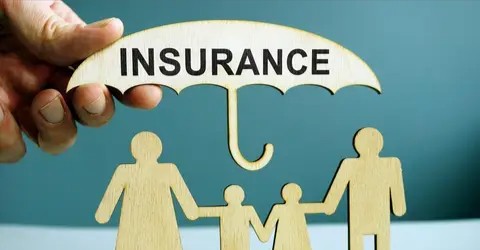Horse riding insurance is a type of insurance that provides coverage for individuals who own or ride horses. It typically includes liability coverage for accidents or injuries that occur while riding or handling horses, as well as coverage for damage or theft of equipment and loss of use of the horse.
You may also like
Some policies may also provide medical coverage for the horse and its rider. The exact coverage provided by horse riding insurance can vary depending on the policy and the insurance company.

Types of horse riding insurance
There are several types of horse riding insurance, including:
Liability insurance: This type of insurance provides coverage for accidents or injuries that occur while riding or handling horses, as well as any damage that the horse may cause to others or their property.
Mortality insurance: This type of insurance provides coverage for the death of a horse due to an accident or illness.
Medical insurance: This type of insurance provides coverage for medical expenses incurred by the horse or its rider due to an accident or illness.
Loss of use insurance: This type of insurance provides coverage for lost income or the cost of retraining a horse if it is unable to be ridden or used for breeding due to an accident or illness.
Equine liability insurance : This type of coverage provides protection for you and your business against third-party claims of bodily injury or property damage caused by your horse or horse related activities.
Event cancellation insurance: This type of insurance provides coverage for expenses incurred if an event, such as a horse show, is cancelled due to unforeseen circumstances.
It is important to note that not all horse riding insurance policies offer all of these types of coverage, and the coverage can vary depending on the policy and the insurance company.


Cost of horse riding insurance
The cost of horse riding insurance can vary depending on several factors, including the type of coverage, the location, the value of the horse, and the level of risk involved.
Some insurance companies may charge a flat rate for certain types of coverage, while others may charge based on the value of the horse or the level of risk involved. For example, a policy for a high-value show horse may cost more than a policy for a lower-value trail horse. Additionally, insurance for horses used for high-risk activities such as eventing or rodeo, may cost more than for horses used for lower-risk activities such as pleasure riding.
On average, liability insurance for a horse can cost anywhere from $150 to $500 per year, depending on the coverage and the value of the horse. Other types of coverage, such as mortality or medical insurance, can cost an additional $100 to $300 per year.
It is important to shop around and compare different insurance policies and companies to find the best coverage at a reasonable cost. It is also important to read the terms and conditions of the policy carefully, to ensure that it meets your needs and that you understand what is covered and what is not covered.

Benefits of horse riding insurance
There are several benefits to having horse riding insurance, including:
Protection against financial loss: Horse riding insurance provides coverage for accidents, injuries, and other incidents that can result in financial loss. This can include medical expenses for the horse or rider, as well as the cost of replacing or repairing damaged equipment.
Liability coverage: Liability insurance provides coverage for accidents or injuries that occur while riding or handling horses, as well as any damage that the horse may cause to others or their property. This can provide peace of mind and protection against legal action.
Medical coverage: Medical insurance provides coverage for medical expenses incurred by the horse or its rider due to an accident or illness. This can help alleviate the financial burden of unexpected vet bills.
Loss of use coverage: Loss of use insurance provides coverage for lost income or the cost of retraining a horse if it is unable to be ridden or used for breeding due to an accident or illness. This can help minimize the financial impact of a horse’s injury or illness.
Business protection: Equine liability insurance provides protection for you and your business against third-party claims of bodily injury or property damage caused by your horse or horse related activities. This can help protect your business from unexpected financial losses.
Event coverage : Event cancellation insurance provides coverage for expenses incurred if an event, such as a horse show, is cancelled due to unforeseen circumstances.
Overall, horse riding insurance can provide peace of mind and protection against financial loss in the event of an accident, injury, or other unexpected incident.






Leave a Comment